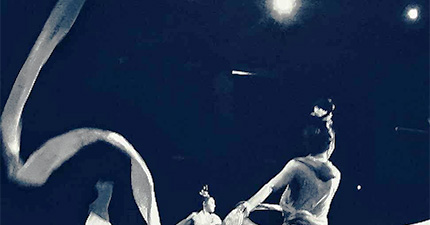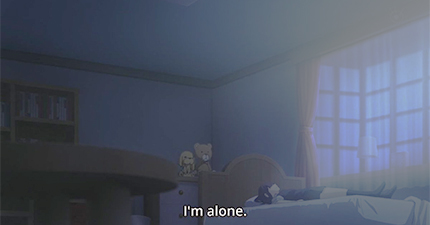There’s an exercise that I like to do with people who are twenty seven. I used to use this exercise more and use it a bit less now because I’ve been learning how to be more flexible as a practitioner lately. For those who don’t know, twenty seven is kind of a big deal in astrology now because it’s the start of a Saturn return (it isn’t) but because it’s the nodal reversal and the progressed Moon return.
In this exercise, we look at a list of needs. I ask the client to pick needs that jump out at them and tell me about why if it feels appropriate. Then, we attach the needs to feelings about what it’s like when the need isn’t met and what it’s like when it is met.
It’s a pretty simple exercise. The reason why it can feel so shocking by the end of the exercise is because there are often needs that we don’t even realize we have because we are so used to not having them be met. We feel that it is impossible to meet these needs ourselves or we cannot find the resources that we need to meet these needs.
What happens when we are so used to lack that we stop noticing it? We start to identify with the emotions that we feel when a vital need goes wanting. We start to identify with wanting without also knowing fullness.
It is okay to want sometimes. There will be times when some of your needs, or even most of your needs, are unmet. You do not become those feelings of want when that happens. You are still capable of being full. You might find that there are times when your needs are more full than they are lacking and, much of the time, you might find that you are able to hold lack and fullness in the same body.
“I am an angry person.” “I am a lonely person.” “I am a fearful person who will never be able to show my full self to people who are just trying to be nice to me.”
No. You’re not these things. I’m not saying this because of some kind of false positivity thing that I subscribe to. You’re not these things simply for the reason that you are not your feelings. You feel your feelings but you do not become your feelings when you feel them.
In the same way that you cannot become happiness, in the way that you cannot become the living embodiment of happiness and fulfillment so that people who yearn for happiness somehow feel happiness through you, you also cannot become your sadness, your anger, or your shame. These are not identities or personalities. These are emotions. It is important to know that the you who is interested in living life can be with your emotions without becoming them because your emotions will never be able to live your life for you.
A side note: I think that a lot of immigrant children feel the need to become happiness for other people. We already know that the project of becoming happiness that has already failed before it has begun. Even if we are able to feel happiness, we are unable to become happiness since we are more complicated than one emotion. There is relief in this.
When we grow up emotionally suppressed, I think that sometimes we feel a kind of freedom and relief in being able to scream our emotions, to express them, and to find other people who may feel things in a way that we can relate to.
The thing is, our feelings and the wounds that some of our feelings remind us of, will never become a political identity for the simple reason that they are not identities at all.
There is an expectation in feminist and feminist adjacent communities to describe yourself through your wounds. Somehow, maybe because so many relationships require the use of digital tools that alienate us so much to each other and makes us feel so far away, feminist identified people are expected to perform vulnerability. This phenomenon is not a target of this article. I suspect that this phenomenon is more complicated than I want to make space for here (When is vulnerability not a performance? Isn’t performance theory the result of queer theory interacting with feminist theory? When does vulnerability become trauma porn? What are the ethics involved when your vulnerability reveals things that your friends have experienced with you and do not want to share?). What I am more interested in is the industry around emotions that are visible and named.
There are emotions that are not named—the feeling of curiosity when you pass a stranger, the semi-jealousy of witnessing a friend interact with another friend, the blush of hearing other people talk about you. There are also emotions that are named frequently—sadness, madness, gladness. There is industry around these named emotions. We have books and classes and even t-shirt slogans about how to achieve happiness, about how to mitigate sadness, and how to scream your anger. Anger, in particular, is an emotion with feminist connotations.
But your anger is not and will never be a political identity. It is not an identity at all. It is an emotion that you can be with and give attention to precisely because you are more than your anger. You do not become your anger even if you spend a lot of your time feeling outraged.
This is because you are able to be more and feel more than your anger. You are able to be more and feel more than the emotions that signify your worst wounds. You are not and will never become your wounds—there is more of you. There is more to you than your pain.
Even our most critical and punishing survival strategies are about more than our wounds. They may know your wounds alongside you but they also know something else. They know your survival. They know and sometimes understand that you are here to live.
Your political identity, your social identity, your creative identities—these will always be more than your wounds. Our movements will always be more than our wounds.
I think that this can be a difference between vulnerability and trauma porn. Trauma porn exists only to draw attention to the wound, to describe the wound in explicit and sensationalized and sometimes even sensual tones. Trauma porn can be used to illustrate things in the same way that all types pornography can, very bluntly, illustrate things. Trauma porn sometimes tries to express itself to people who do not also know the same wound and this can feel exploitative.
I am not against all forms of trauma porn for the same reasons I am not against all forms of pornography. I think that there is a time for crude illustration and I know that catharsis often needs crudeness. There can be an art to crudeness that is also very important. Trauma porn that is done in a commercialized way is obviously different from trauma porn made by independent creators which is also true of other types of pornography.
But trauma porn is just porn. It is a crude illustration, often artfully done and emotionally stirring, and it does not describe all of you. It does not try to describe all of you. It tries only to describe the wound. And you are not your wounds.
Vulnerability is different. Vulnerability requires personhood. To understand that someone is vulnerable, we must also understand that they are a person who has chosen to express an emotion and that this person is capable of also feeling emotions that they do not choose to express to us. Vulnerability is not forced intimacy. Vulnerability demands that you know yourself.
If our movements require vulnerability, then they also require the choice to not share things that we don’t want to share, the space to choose intimacy and not to be forced into it by the exposure of collective wounds, and the ability to know that you have a self that is able to know your pain without becoming pain.


